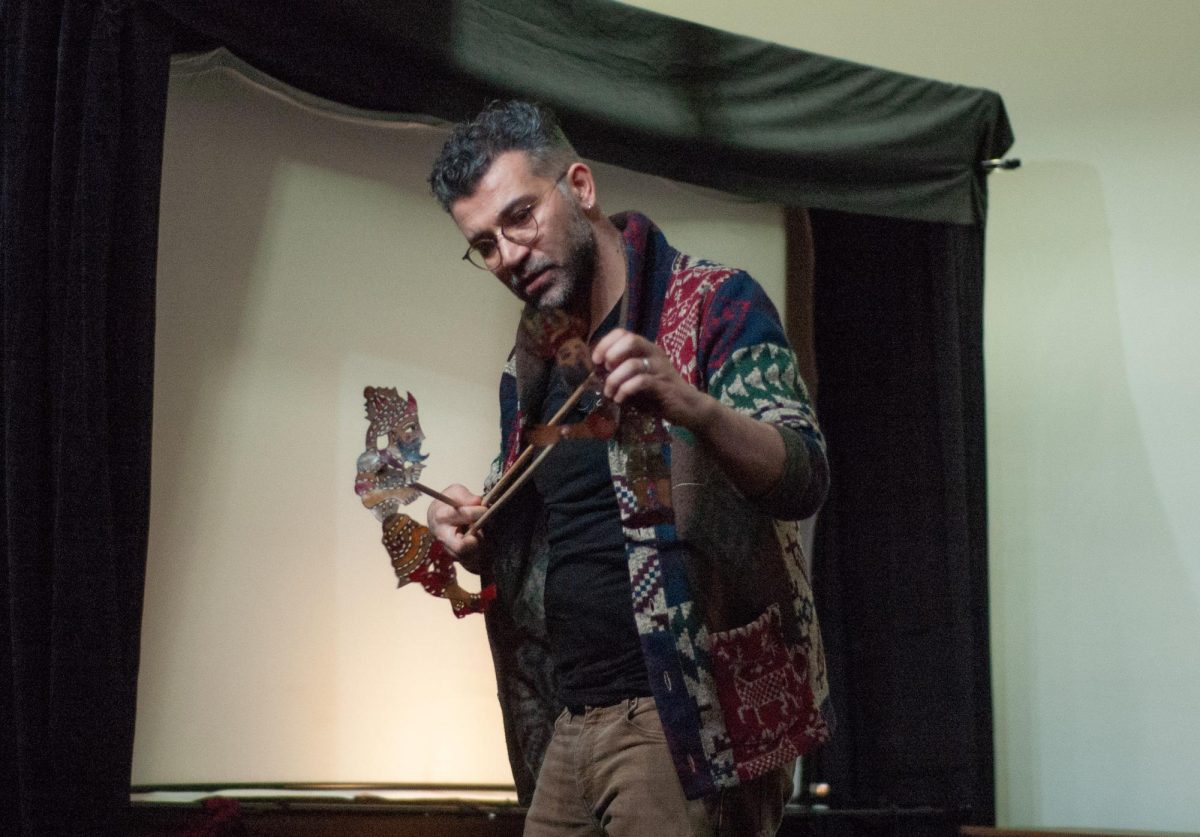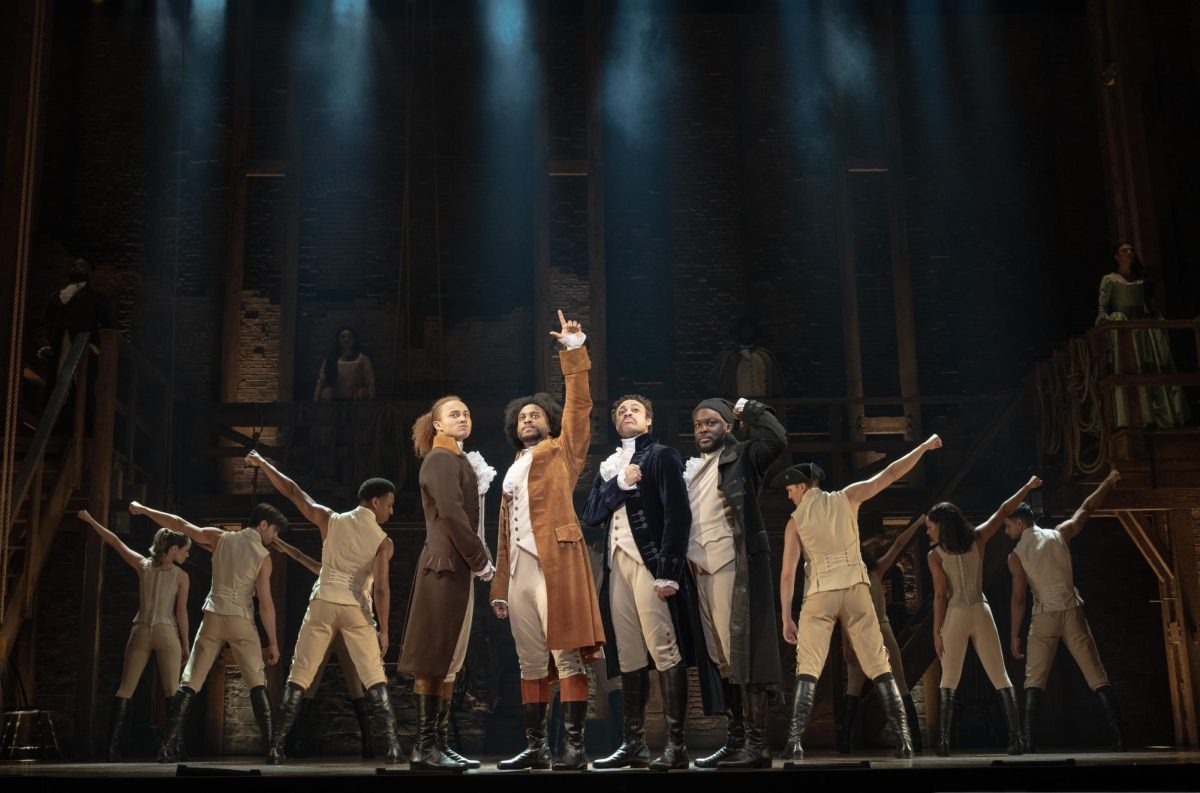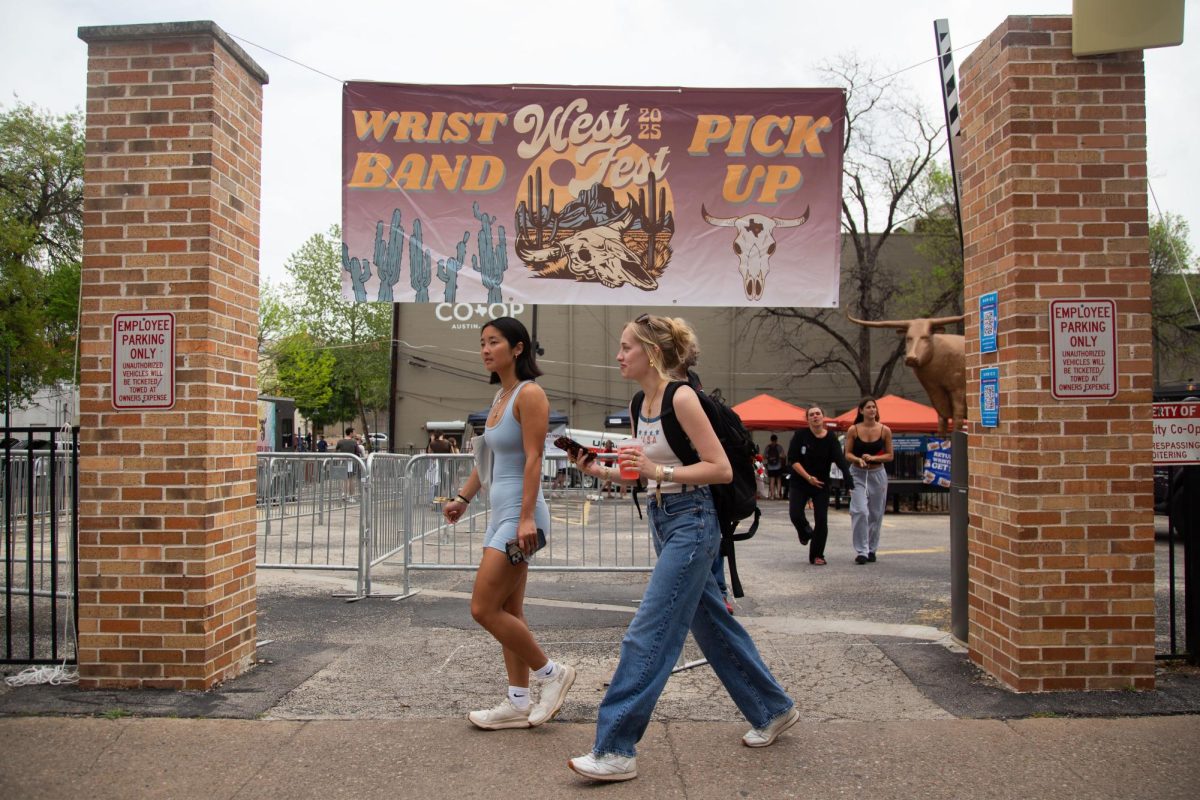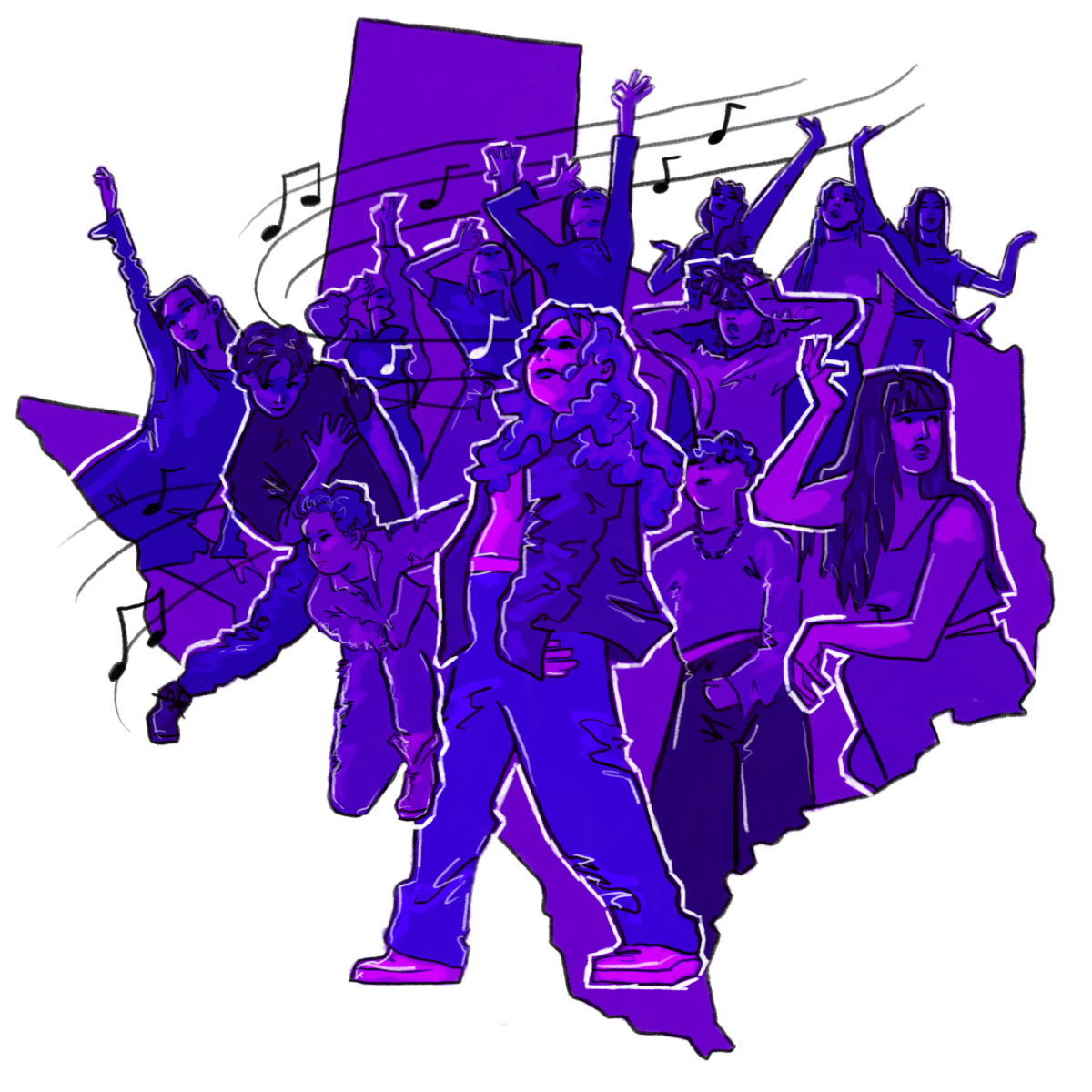Few people knew about traditional Turkish theater before Kurdish immigrant and professional artist, Ayhan Hulagu, arrived in the United States. Despite challenges with linguistic and cultural barriers, Hulagu knew his unique skills, only mastered by a handful of artists around the world, needed to be shared.
UT’s Center for Middle Eastern Studies hosted the performance of a 700-year-old traditional Anatolian shadow puppet show at the Union Theatre on Tuesday. Hulagu single-handedly wrote, produced and performed a Karagoz play titled “The Forest of the Witch,” an improvisational comedy show featuring several characters represented through hand-made painted leather figures.
“My home has an amazing cultural background (and) tales (that) are not known on this side of the world,” Hulagu said. “I don’t have the choice to tell another story.”
Especially popular in Istanbul, Karagoz is traditionally performed during Ramadan at night after fasts are broken. Hulagu has introduced the distinct puppetry style across several continents, to multiple American universities — including Harvard, Cornell and New York University — and on Broadway. Additionally, he leads workshops to educate others about the art form’s traditional methods.
“The Forest of the Witch” marked the first production of the US Karagoz Theatre Company, which Hulagu founded in 2017. Constantly adapting to engage culturally diverse audiences, the play blends traditional storytelling methods with modern characters and universal themes.
“If you can touch (the viewer’s) heart, you can change something in their mind,” Hulagu said.
Hulagu said he incorporates his own experiences as a Kurdish immigrant into his artistry. Kurds make up less than a quarter of the Turkish population. His childhood strengthened him for the challenges he faced as an immigrant in the U.S. and helped him reach a multicultural audience.
Jeannette Okur, professor and Turkish program coordinator, invited Hulagu to the University and arranged the enriching performance for students.
“There are other sorts of traditional art forms out there in the world that are unique and can be funny,” Okur said. “It’s important for (people) to understand that an immigrant can bridge both cultures and make things accessible to a new audience.”
Saffie Kaplan, UT alumna and event coordinator, said performances like Hulagu’s give students the opportunity to encounter distinct cultural experiences.
“What we do at the Center for Middle Eastern Studies is really important, because it allows people to be exposed to culture, art and views from countries that don’t get a lot of attention,” Kaplan said. “Most people probably know very little about Turkey.”
Hulagu continues to advance the art form by entertaining and educating with the captivating artistry of his ethnic heritage. Likewise, he said everyone has an obligation to share and receive different stories and perspectives.
“I didn’t choose (this artform), it chose me,” Hulagu said. “I will tell my story.”














